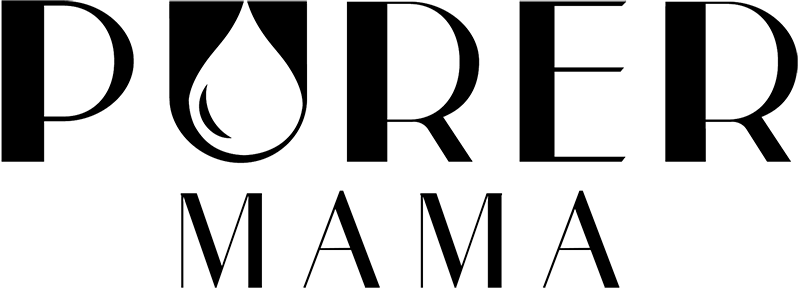Natural Relief for Hay Fever: Supplements and Foods That May Help
Hay fever, or allergic rhinitis, is a common condition that affects millions of people worldwide. Characterized by symptoms like sneezing, itching, nasal congestion, and runny nose, hay fever can significantly impact quality of life, especially during allergy season. While over-the-counter medications are commonly used, many are turning to natural remedies, including supplements and specific foods, to find relief. This blog explores the benefits of probiotics, omega-3 fatty acids, honey, elderflower, and other helpful foods backed by research.
Probiotics
Probiotics are live bacteria and yeasts that are beneficial for digestive health. Recent studies suggest that they may also help alleviate symptoms of hay fever.
**Research Insight**: A systematic review published in *The American Journal of Clinical Nutrition* found that probiotics can reduce the severity of hay fever symptoms. The study suggests that probiotics modulate the immune system, potentially decreasing the inflammatory response associated with allergens .
Omega-3 Fatty Acids
Omega-3 fatty acids, found in fish oil and certain plant oils, are known for their anti-inflammatory properties, which may help reduce hay fever symptoms.
**Research Insight**: According to a study in *Nutrients*, omega-3 fatty acids can lower the production of inflammatory cytokines and immunoglobulin E (IgE), which are involved in allergic reactions. Regular intake of omega-3s was associated with fewer and less severe hay fever symptoms .
Honey
Honey has long been used as a natural remedy for various ailments. Some believe that locally produced honey can help reduce hay fever symptoms by exposing the body to small amounts of pollen. Local honey from where you live is thought to be the most beneficial.
**Research Insight**: A study published in *The Annals of Saudi Medicine* found that consuming honey led to a significant reduction in hay fever symptoms compared to a placebo. The study suggests that the pollen content in honey might help desensitize the immune system to allergens .
Elderflower
Elderflower, derived from the elder tree, is traditionally used to treat cold and flu symptoms and may also be beneficial for hay fever.
**Research Insight**: Research in *Frontiers in Pharmacology* indicates that elderflower has anti-inflammatory and antioxidant properties, which can help alleviate allergic symptoms. Elderflower extracts were shown to inhibit the release of histamines, thereby reducing symptoms like sneezing and itching .
Other Helpful Foods
In addition to the supplements mentioned, certain foods can also support the immune system and potentially alleviate hay fever symptoms:
Turmeric
**Benefits**: Turmeric contains curcumin, a compound with potent anti-inflammatory and antioxidant properties.
**How to Use**: Add turmeric to soups, stews, or smoothies. You can also take curcumin supplements.
Ginger
**Benefits**: Ginger has natural anti-inflammatory and antihistamine effects, which can help reduce allergy symptoms.
**How to Use**: Incorporate fresh or powdered ginger into teas, stir-fries, or baked goods.
Pineapple
**Benefits**: Pineapple contains bromelain, an enzyme that can help reduce mucus and inflammation.
**How to Use**: Eat fresh pineapple or drink pineapple juice. Bromelain supplements are also available.
Garlic
**Benefits**: Garlic is known for its immune-boosting and anti-inflammatory properties.
**How to Use**: Add raw or cooked garlic to salads, soups, and other dishes.
Apples
**Benefits**: Apples are rich in quercetin, a natural antihistamine that can help reduce allergic reactions.
**How to Use**: Eat apples fresh or include them in salads, smoothies, and desserts.
Berries
**Benefits**: Berries, particularly blueberries, strawberries, and raspberries, are high in antioxidants and vitamins that support the immune system.
**How to Use**: Enjoy berries fresh, in smoothies, or as toppings for yogurt and oatmeal.
Citrus Fruits
**Benefits**: Citrus fruits like oranges, lemons, and grapefruits are high in vitamin C, which can help reduce histamine levels and boost the immune system.
**How to Use**: Eat citrus fruits fresh or drink their juices.
Spinach
**Benefits**: Spinach is rich in vitamins and minerals, including vitamin C and folate, which support the immune system.
**How to Use**: Add spinach to salads, smoothies, or cooked dishes.
Tomatoes
**Benefits**: Tomatoes contain vitamin C and lycopene, which have anti-inflammatory properties.
**How to Use**: Eat tomatoes fresh, in salads, or as part of sauces and soups.
Nuts and Seeds
**Benefits**: Nuts and seeds, especially almonds, walnuts, and flaxseeds, are high in omega-3 fatty acids, which can help reduce inflammation.
**How to Use**: Snack on nuts and seeds or add them to cereals, salads, and baked goods.
Green Tea
**Benefits**: Green tea contains catechins, which have anti-allergic properties and can help reduce histamine release.
**How to Use**: Drink green tea regularly.
Conclusion
While conventional treatments for hay fever are effective, natural remedies like probiotics, omega-3 fatty acids, honey, elderflower, and certain foods can provide additional relief. Incorporating these supplements and foods into your diet may help manage symptoms and improve overall well-being during allergy season.
How to Incorporate These Remedies
1. **Probiotics**: Consume yogurt, kefir, sauerkraut, or take a high-quality probiotic supplement.
2. **Omega-3 Fatty Acids**: Include fatty fish like salmon, flaxseeds, chia seeds, or take fish oil supplements.
3. **Honey**: Use local honey as a sweetener in tea or drizzle over breakfast dishes.
4. **Elderflower**: Drink elderflower tea or use elderflower extracts as directed.
5. **Turmeric, Ginger, and Pineapple**: Add these to your daily meals or take as supplements.
6. **Garlic, Apples, Berries, Citrus Fruits, Spinach, Tomatoes, Nuts, Seeds, and Green Tea**: Incorporate these into your regular diet for added health benefits.
By including a variety of these nutrient-rich foods and supplements, you can better manage your hay fever and enjoy a healthier, more comfortable allergy season.
References
1. [Probiotics and hay fever](https://academic.oup.com/ajcn/article/97/3/606/4577147)
2. [Omega-3 fatty acids and allergies](https://www.mdpi.com/2072-6643/10/8/1029)
3. [Honey as a treatment for hay fever](https://www.ncbi.nlm.nih.gov/pmc/articles/PMC3435780/)
4. [Elderflower and allergy symptoms](https://www.frontiersin.org/articles/10.3389/fphar.2020.00227/full)
For more detailed information and the latest research, check out the linked studies and consult with a healthcare professional before starting any new supplement regimen.
